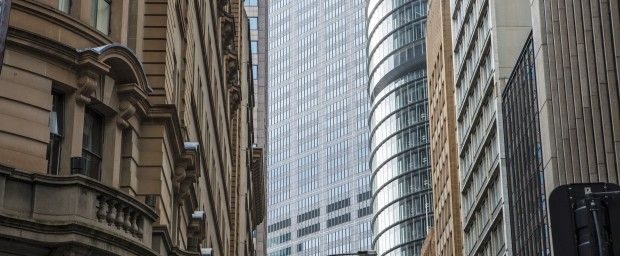Sydney businesses save big by cutting emissions – top move for bottom line
City of Sydney, Lord Mayor Clover Moore today announced that Sydney’s top commercial landlords had cut 45 per cent of their emissions since 2006, saving an impressive $30 million a year.
The City of Sydney-led Better Buildings Partnership includes the major landlords and property managers of more than half of the Sydney city centre’s commercial office floor space.
The Lord Mayor announced the results at the UN Climate Conference in Paris, as part of a keynote speech on the crucial role for buildings in tackling climate change.
“We mean business when it comes to tackling climate change,” the Lord Mayor said.
“With these results, Sydney’s biggest landlords have shown it makes financial sense to cut emissions.
“They’re already more than halfway to reaching their 70 per cent emissions reduction target by 2030.
“Together we’ve shown that more ambitious targets are possible and compatible with strong economic growth.
“We’re seeing real climate leadership by companies here in Australia. The Better Buildings Partnership’s ongoing success is a model for how much progress can be made when government and the private sector work together on sensible, effective climate policies.”
Members of the Better Buildings Partnership have improved the overall sustainability performance of their buildings through measures such as building system upgrades, improved facilities management and green infrastructure including locally produced trigeneration, low carbon energy and recycled water networks.
Improving the energy efficiency of buildings has avoided more than145,000 tonnes carbon emissions in the last year alone and shaved more than $30 million a year from the bottom line. It’s reduced energy use across their92 buildings by six per cent, cut greenhouse gas emissions and reduced water consumption by more than a third on 2006 levels.
Over half of the city’s greenhouse gas emissions come from commercial office buildings, so it’s important to reduce their overall environmental impact.
BBP Chair and group general manager HSE and sustainability, Paul Edwards, praised members for their impressive savings.
“The Better Buildings Partnership has delivered exceptional results, clearly demonstrating the value of working in collaboration with peers,” Mr Edwards said.
“The BBP has again taken a major step towards 70 per cent reduction by 2030, hitting 45 per cent this year.”
“The power of working together is proving again to be the right approach – delivering outstanding value to members and introducing new standards, such as new waste guidelines, which help the whole industry.”
The BBP’s waste guidelines are one of a suite of practical tools that are raising the bar on sustainability management practice for commercial buildings.
The City has worked closely with the BBP on the development of its energy efficiency master plan and climate adaptation plan.
The City’s climate adaptation plan was adopted this year to prepare for future impacts of climate change. These include more heat waves and extreme weather, such as the storms Sydney experienced in April this year. The plan was prepared with help from major science groups and leading business and property organisations, including the BBP.
The adapting for climate change strategy contains 39 different actions to help deal with issues ranging from changing rainfall patterns and rising sea levels to more severe heat waves.
The award-winning BBP is one of many City of Sydney programs working with Australian businesses and communities to reduce emissions while making a significant contribution to their bottom line.
For more information, visit sydneybetterbuildings.com.au




